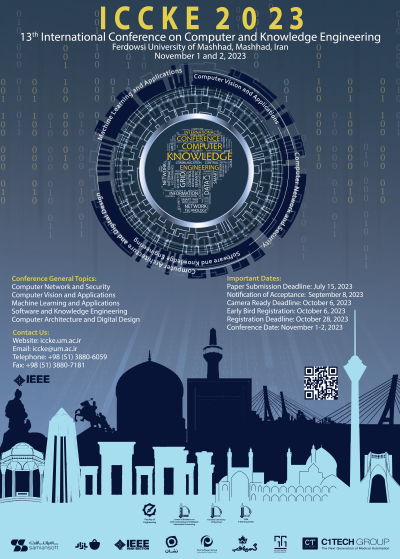0% Complete

Authors :
Keywords :
Abstract :
List of archived papers
Kamyar Nasiri - Kamaledin Ghiasi-Shirazi
Zaniar Sharifi - Khabat Soltanian - Ali Amiri
Mohammad Naisipour - Iraj Saeedpanah - Arash Adib - Mohammad Hossein Neisi Pour
Seyed Aref Hakimzadeh - Koorush Ziarati
Ali Salimi Sadr - Mahdi Shahbazi Khojasteh - Hamed Malek - Armin Salimi-Badr
Hannaneh Mahdavi - Reza Goldoust - Saeideh Rahbarpour
Zahra Qodrati - Seyedeh Masoumeh Taji - Habibollah Danyali - Kamran Kazemi
Reza Arghand - Ali Chaibakhsh - Moein Radman
Erfan Akbarnezhad Sany - Fatemeh Naserizadeh - Parsa Sinichi - Seyyed Abed Hosseini
Mahdi Farhadi - Seyede Mahya Hazavei - Shahriar Baradaran Shokouhi




